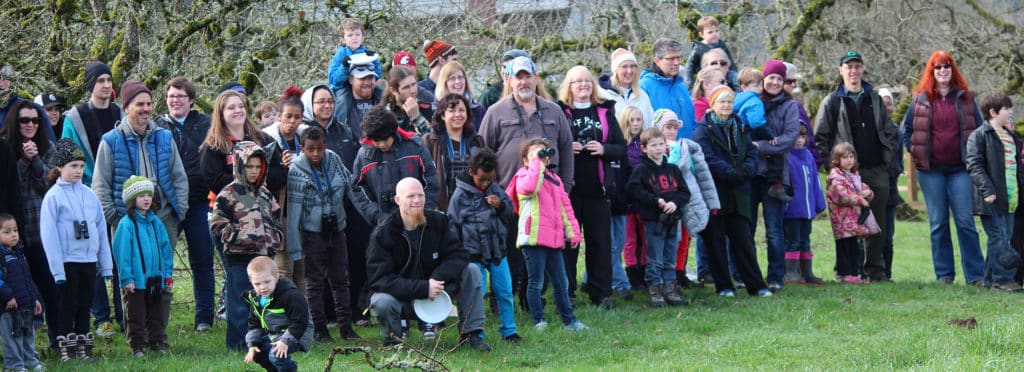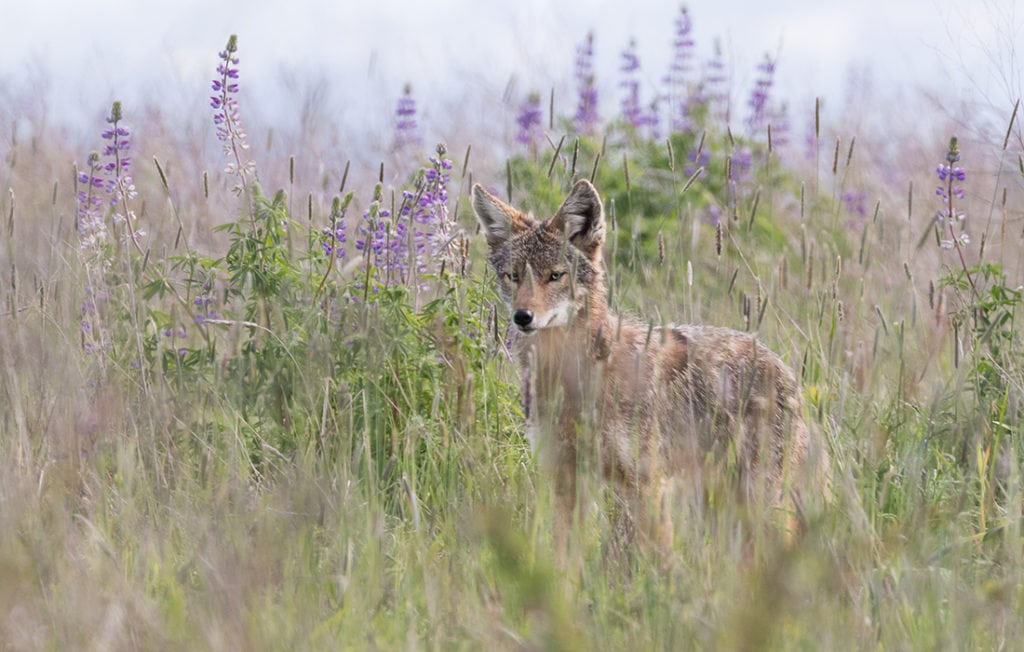
Sometimes our nurturing instincts take over, though. Recently, a Good Samaritan brought a baby American Crow to the Wildlife Care Center after keeping the bird and its sibling in his home for three days. It was only after the sibling died that he decided to bring the other Crow to the Wildlife Care Center.
During baby bird season, fledgling Crows can often be seen on the ground while learning to fly. Because these still-young birds look like adults, it’s quite understandable when we humans mistake a fledgling Crow for an injured adult. It’s no wonder the Wildlife Care Center gets so many calls about fledgling Crows this time of year.
It was immediately clear to our Care Center staff and volunteers that the Crow was severely dehydrated. The bird was not alert either, and soon it became apparent that the animal was “crashing,” meaning it might not live long. After being placed in an incubator by staff, the bird died after about an hour after its arrival.
The person who found the baby Crows did his best to keep them nourished. He nestled them in a soft-lined box and treated them with tenderness. In fact, he said the birds seemed to be doing well the first couple days they were in his home.
So, what went wrong?
Wild animals are not like pets. No matter what, it is never a good idea and in many cases illegal to take in an abandoned or injured wild bird or animal. If there is concern that a bird or other type of wildlife is injured or orphaned, the best thing to do is to call our Wildlife Care Center. Our experts are on hand 365 days a year from 9 – 5 and can advise you on what to do and whether or not the animal should be brought in for treatment.
In the Care Center, animals are tended to throughout the day, kept in proper enclosures, incubated when necessary, and fed on a strict schedule. Baby birds need to be fed as often as every 15 minutes throughout the day, depending on their stage of development. While they mean well, most people do not have the proper knowledge or resources at home to care for wild birds, babies or adults.
Also, when it comes to baby birds, there is a distinct danger of imprinting or habituation. Imprinting, which occurs at a very early and critical stage, is a form of learning in which an animal develops its identity. If spoken to or treated like a pet, for instance, a hatchling or nestling can become imprinted and ultimately believe it, too, is human. At the fledgling stage, a baby bird can become habituated, essentially losing its fear of humans. In the Wildlife Care Center, we maintain a quiet environment for this very reason and limit the opportunities for birds to see humans. That’s right: No talk radio or excessive chatter here! We also house baby birds with others of the same species. In some cases we even go so far as to raise baby birds with bird puppets, no humans in sight.
“Wild birds can be imprinted if treated the way we treat other humans, pets, or even animals kept in captivity,” said Ronda Naseth, a zookeeper and Wildlife Care Center volunteer. “It is crucial that wild birds are not imprinted because this prevents them from living a successful life in the wild where they belong.”
What to Do if You Find a Baby Bird
Ultimately, the young Crows probably would have been best protected had they been left untouched. When we see baby birds on the ground, odds are these birds are just fine. Many species of birds such as robins, scrub jays, crows and owls leave the nest and spend as long as a week on the ground before they can fly. If the bird is in danger of a predator, move the bird to a safe spot nearby such as in a nearby shrub.
If you find a bird on the ground that might be injured or orphaned, first, refer to our detailed information about what to do if you find a baby bird. If you have a question or believe the bird needs human assistance, call the Wildlife Care Center at 503-292-0304 as soon as possible.
Remember, keeping a wild baby bird in captivity denies it the opportunity to attain the vital skills it needs to survive in the wild.
Kate Kaye is a volunteer at Bird Alliance of Oregon’s Wildlife Care Center. A veteran tech and data reporter who has appeared on NPR’s On the Media, Weekend Edition Sunday and at events held by Yale Law School and Harvard’s Nieman Journalism Lab, Kate is also the author of the book, “Campaign ’08: A Turning Point for Digital Media.”
Every year the Wildlife Care Center treats 3,000 injured or orphaned native animals. If you would like to make a donation to support our wildlife rehabilitation work at the Wildlife Care Center, click here.



